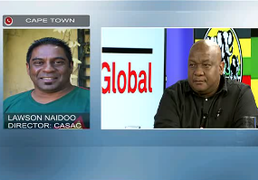NELSON Mandela was one of a kind, with no one quite like him, President Jacob Zuma said on Tuesday at the national memorial service for the late president at the FNB Stadium in Johannesburg, attended by thousands of mourners, world leaders and other dignitaries and celebrities.
Mr Zuma announced the renaming of the Union Buildings’ amphitheatre, where Mandela’s body is to lie in state until his burial in Qunu on Sunday, as the Nelson Mandela Amphitheatre.
"When a man has done his duty to his country he can rest in peace," he said of the man who spent 27 years behind bars and who devoted more than 67 years to a free and equal South Africa.
"For 27 years, South African people spoke about him in hushed tones," said Mr Zuma. If the apartheid government had gotten its wish, he added, people would not have even been able to think about Mandela.
There were many times that Mandela brought South Africa back from "the brink of catastrophe", the president said, referring to the massacre at Boipatong in 1993 and the assassination of struggle hero Chris Hani as examples.
Mr Zuma said Mandela had carefully managed the anger and frustration of the oppressor and the oppressed in the transition to democracy in South Africa, and never hesitated to speak his mind, no matter how uncomfortable his words may have been.
"Many leaders, some of whom are present here, have experienced his sharp tongue," he said.
He said the South African government committed itself to continue building a nation characterised by human dignity and equality, and a country free of hunger and poverty.
South Africa is still the one of the most unequal societies in the world, marred by unemployment that hovers near 25% and widespread poverty amid progress.
Mr Zuma said Mandela’s presidency was characterised by his leadership in showing South Africans tolerance for each other and "creating space for the best in all of us".
“Everyone has had a Mandela moment” when this great icon has touched their lives, he said.
“We feel stronger today because we are being comforted by millions throughout the world. Never before has our country celebrated a life as we are doing with Madiba today,” he said.
Describing Mandela as a courageous leader who stood up for his dreams, even at huge personal cost, and a fearless freedom fighter who refused to allow the brutality of the apartheid state to stand in his way, Zuma said he was “the greatest son of South Africa and Africa”.
Tuesday was also international Human Rights Day and the 20th anniversary of Mandela’s joint reception of the Nobel Peace Prize, Mr Zuma said. He added that Mandela had only led the ANC’s switch from peaceful to armed resistance because of the intransigence of the apartheid regime. “He saw violence as a means to an end, not an end in itself,” he said.
Mr Zuma also said Mandela had laid the foundations of South Africa’s fight against HIV/AIDS while in office and during his retirement when he used his Robben Island prison number, 46664, as an emblem in the fight against the disease in Africa and the world.
Mixed welcome for Zuma
Earlier in the day, when Mr Zuma first stepped onto the podium, he was booed by many in the audience while others gave him a rousing welcome. He has been embroiled in several scandals since before he assumed the presidency, most recently involving the R206m spent on his private estate at Nkandla, KwaZulu-Natal.
The embarrassing moment seemingly prompted ANC deputy president Cyril Ramaphosa to plead with the crowd for a "dignified and fitting memorial". The incident also seemed awkward for Mr Zuma, who sat still and watched. He was later to deliver a keynote address.
Mr Ramaphosa later again called for "discipline" after it appeared that parts of the crowd were jeering at Mr Zuma following a roar of applause for US President Barack Obama.
ANC spokesman Jackson Mthembu said on the sidelines of the memorial service that the jeering was "unfortunate", adding: "There are many organisations who are here. This is an event for all people ... We would expect all organisations that are here to respect this solemn moment."
Mandela died in Johannesburg on Thursday, aged 95. He will lie in state at the Union Buildings from Wednesday and his burial will take place in Qunu in the Eastern Cape on Sunday.
At the end of the proceedings on Tuesday, Archbishop Emeritus Desmond Tutu reprimanded the crowd.
“I want to show the world we can come out here and celebrate the life of an icon,” he shouted, visibly angry. “You must show the world that we are disciplined. I want to hear a pin drop.”
As he spoke, some people in the crowd started talking, and he pointed at them and shouted.
“We promise God that we are going to follow the example of Nelson Mandela,” he said.
Obama pays tribute
Earlier, Mr Obama said the world thanked South Africa for sharing Mandela with them.
"It is an honour to be with you today, to celebrate a life like no other," he said. "People of every walk of life, the world thanks you for sharing Mandela with us. His struggle was your struggle."
Mr Obama said the death of Mandela was a time for self-reflection. "How well have I applied his lessons in my own life? It’s a question I ask myself — as a man and as a president."
He said it was hard to eulogise about such a "giant of history". He was the last great liberator of the 20th century and while it was tempting to remember him as an icon, Mandela himself resisted such a lifeless portrayal.
Instead, he shared his doubts and fears, his miscalculations and his victories, said Mr Obama. "He was not a bust made of marble but flesh and blood." This was why the world could learn from him, he said.
To a roar of applause, Mr Obama referred to a "word in South Africa: ubuntu" that captured Mandela’s greatest gift — "the recognition that we are all bound together in ways invisible to the human eye".
The US president said much had been achieved in the fight for racial equality, and that he and his wife, Michelle, were the beneficiaries of that. But "we cannot allow our progress to cloud the fact that our work is not yet done".
Around the world, there was still suffering, people imprisoned for their beliefs and being persecuted for their ethnicity. Mr Obama said there were too many leaders who claimed solidarity with Mandela’s vision but did not tolerate dissent from their own people.
"Mandela reminded us that it always seems impossible until it is done … We will never see the likes of Nelson Mandela again," he said.
"While I will always fall short of his example, he makes me want to be a better man. He speaks to what is best inside us," said Mr Obama.
Messages from the Brics
Brazilian President Dilma Rousseff, the first Brics (Brazil, Russia, India, China and South Africa) leader to speak officially on Tuesday, described Mandela as "the most outstanding personality of the 21st century".
Speaking in her native Portuguese, Ms Rousseff first greeted Ms Machel, who is also the widow of former Mozambican president Samora Machel who was killed in an aeroplane crash, allegedly by the apartheid government. Mozambique was a Portuguese colony, and the language is its lingua franca.
Mandela was "a model for all those who fight for justice, freedom and equality", and he fought tirelessly against the "most elaborate and cruel system of inequality and oppression of modern times", Ms Rousseff said.
She described him as a "key reference" figure for the world, full of stoic and enduring passion. Brazilians proudly carried African blood and celebrated this man who changed the world, she said.
Chinese Vice-President Li Yuanchao, who sent condolences on behalf of the nation’s President Xi Jinping, said Mandela had been "the pride of the African people", who strived for the liberty of the continent’s people, dedicating his entire life to the development and progress of Africa.
Speaking of the man who tread lightly the narrow thread between China and Taiwan, Mr Yuanchao said Mandela had been "a friend of the Chinese people who had committed himself to South Africa-Chinese relations".
South Africa’s relationship with Taiwan has greatly diminished since Mandela’s term of office ended in 1999 and Mr Mbeki took the helm.
Mr Yuanchao said China was "glad" to see South Africa’s rise as a global power. This rise was greatly boosted by China’s inviting South Africa to join the so-called Bric emerging nations in December 2010, creating the formation now known as Brics.
"China is ready to work with South Africa to bring benefits to both (South Africa and China) and to contribute to world peace," he said.
Indian President Pranab Mukherjee’s speech was embarrassingly interrupted by Mr Ramaphosa of the ANC, who had to call on a brass band to cease playing.
Mandela had pursued the impossible, Mr Mukherjee said.
"He pursued an impossible goal for his people. We, in India, have long admired him and all that he stood for, and we will always cherish him," he said. "Nelson Mandela was a visionary. He epitomised uncommon human ways that inspired all of mankind."
Franny Rabkin, Sue Blaine, Natasha Marrian, Setumo Stone, Khulekani Magubane and Colleen Goko, with Sapa
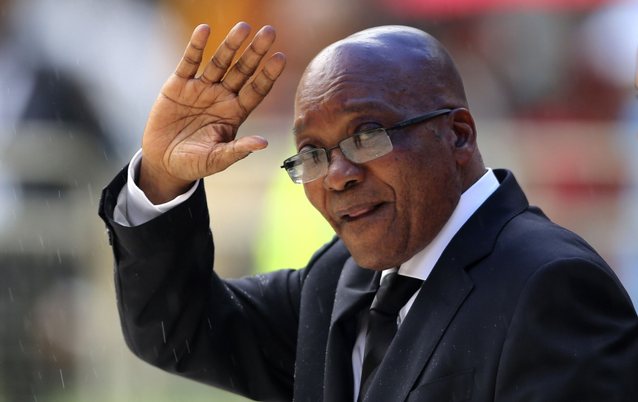
President Jacob Zuma waves as he arrives at the FNB Stadium for the national memorial service for former president Nelson Mandela in Johannesburg on Tuesday. Picture: REUTERS
NELSON Mandela was one of a kind, with no one quite like him, President Jacob Zuma said on Tuesday at the national memorial service for the late president at the FNB Stadium in Johannesburg, attended by thousands of mourners, world leaders and other dignitaries and celebrities.
Mr Zuma announced the renaming of the Union Buildings’ amphitheatre, where Mandela’s body is to lie in state until his burial in Qunu on Sunday, as the Nelson Mandela Amphitheatre.
"When a man has done his duty to his country he can rest in peace," he said of the man who spent 27 years behind bars and who devoted more than 67 years to a free and equal South Africa.
"For 27 years, South African people spoke about him in hushed tones," said Mr Zuma. If the apartheid government had gotten its wish, he added, people would not have even been able to think about Mandela.
There were many times that Mandela brought South Africa back from "the brink of catastrophe", the president said, referring to the massacre at Boipatong in 1993 and the assassination of struggle hero Chris Hani as examples.
Mr Zuma said Mandela had carefully managed the anger and frustration of the oppressor and the oppressed in the transition to democracy in South Africa, and never hesitated to speak his mind, no matter how uncomfortable his words may have been.
"Many leaders, some of whom are present here, have experienced his sharp tongue," he said.
He said the South African government committed itself to continue building a nation characterised by human dignity and equality, and a country free of hunger and poverty.
South Africa is still the one of the most unequal societies in the world, marred by unemployment that hovers near 25% and widespread poverty amid progress.
Mr Zuma said Mandela’s presidency was characterised by his leadership in showing South Africans tolerance for each other and "creating space for the best in all of us".
“Everyone has had a Mandela moment” when this great icon has touched their lives, he said.
“We feel stronger today because we are being comforted by millions throughout the world. Never before has our country celebrated a life as we are doing with Madiba today,” he said.
Describing Mandela as a courageous leader who stood up for his dreams, even at huge personal cost, and a fearless freedom fighter who refused to allow the brutality of the apartheid state to stand in his way, Zuma said he was “the greatest son of South Africa and Africa”.
Tuesday was also international Human Rights Day and the 20th anniversary of Mandela’s joint reception of the Nobel Peace Prize, Mr Zuma said. He added that Mandela had only led the ANC’s switch from peaceful to armed resistance because of the intransigence of the apartheid regime. “He saw violence as a means to an end, not an end in itself,” he said.
Mr Zuma also said Mandela had laid the foundations of South Africa’s fight against HIV/AIDS while in office and during his retirement when he used his Robben Island prison number, 46664, as an emblem in the fight against the disease in Africa and the world.
Mixed welcome for Zuma
Earlier in the day, when Mr Zuma first stepped onto the podium, he was booed by many in the audience while others gave him a rousing welcome. He has been embroiled in several scandals since before he assumed the presidency, most recently involving the R206m spent on his private estate at Nkandla, KwaZulu-Natal.
The embarrassing moment seemingly prompted ANC deputy president Cyril Ramaphosa to plead with the crowd for a "dignified and fitting memorial". The incident also seemed awkward for Mr Zuma, who sat still and watched. He was later to deliver a keynote address.
Mr Ramaphosa later again called for "discipline" after it appeared that parts of the crowd were jeering at Mr Zuma following a roar of applause for US President Barack Obama.
ANC spokesman Jackson Mthembu said on the sidelines of the memorial service that the jeering was "unfortunate", adding: "There are many organisations who are here. This is an event for all people ... We would expect all organisations that are here to respect this solemn moment."
Mandela died in Johannesburg on Thursday, aged 95. He will lie in state at the Union Buildings from Wednesday and his burial will take place in Qunu in the Eastern Cape on Sunday.
At the end of the proceedings on Tuesday, Archbishop Emeritus Desmond Tutu reprimanded the crowd.
“I want to show the world we can come out here and celebrate the life of an icon,” he shouted, visibly angry. “You must show the world that we are disciplined. I want to hear a pin drop.”
As he spoke, some people in the crowd started talking, and he pointed at them and shouted.
“We promise God that we are going to follow the example of Nelson Mandela,” he said.
Obama pays tribute
Earlier, Mr Obama said the world thanked South Africa for sharing Mandela with them.
"It is an honour to be with you today, to celebrate a life like no other," he said. "People of every walk of life, the world thanks you for sharing Mandela with us. His struggle was your struggle."
Mr Obama said the death of Mandela was a time for self-reflection. "How well have I applied his lessons in my own life? It’s a question I ask myself — as a man and as a president."
He said it was hard to eulogise about such a "giant of history". He was the last great liberator of the 20th century and while it was tempting to remember him as an icon, Mandela himself resisted such a lifeless portrayal.
Instead, he shared his doubts and fears, his miscalculations and his victories, said Mr Obama. "He was not a bust made of marble but flesh and blood." This was why the world could learn from him, he said.
To a roar of applause, Mr Obama referred to a "word in South Africa: ubuntu" that captured Mandela’s greatest gift — "the recognition that we are all bound together in ways invisible to the human eye".
The US president said much had been achieved in the fight for racial equality, and that he and his wife, Michelle, were the beneficiaries of that. But "we cannot allow our progress to cloud the fact that our work is not yet done".
Around the world, there was still suffering, people imprisoned for their beliefs and being persecuted for their ethnicity. Mr Obama said there were too many leaders who claimed solidarity with Mandela’s vision but did not tolerate dissent from their own people.
"Mandela reminded us that it always seems impossible until it is done … We will never see the likes of Nelson Mandela again," he said.
"While I will always fall short of his example, he makes me want to be a better man. He speaks to what is best inside us," said Mr Obama.
Messages from the Brics
Brazilian President Dilma Rousseff, the first Brics (Brazil, Russia, India, China and South Africa) leader to speak officially on Tuesday, described Mandela as "the most outstanding personality of the 21st century".
Speaking in her native Portuguese, Ms Rousseff first greeted Ms Machel, who is also the widow of former Mozambican president Samora Machel who was killed in an aeroplane crash, allegedly by the apartheid government. Mozambique was a Portuguese colony, and the language is its lingua franca.
Mandela was "a model for all those who fight for justice, freedom and equality", and he fought tirelessly against the "most elaborate and cruel system of inequality and oppression of modern times", Ms Rousseff said.
She described him as a "key reference" figure for the world, full of stoic and enduring passion. Brazilians proudly carried African blood and celebrated this man who changed the world, she said.
Chinese Vice-President Li Yuanchao, who sent condolences on behalf of the nation’s President Xi Jinping, said Mandela had been "the pride of the African people", who strived for the liberty of the continent’s people, dedicating his entire life to the development and progress of Africa.
Speaking of the man who tread lightly the narrow thread between China and Taiwan, Mr Yuanchao said Mandela had been "a friend of the Chinese people who had committed himself to South Africa-Chinese relations".
South Africa’s relationship with Taiwan has greatly diminished since Mandela’s term of office ended in 1999 and Mr Mbeki took the helm.
Mr Yuanchao said China was "glad" to see South Africa’s rise as a global power. This rise was greatly boosted by China’s inviting South Africa to join the so-called Bric emerging nations in December 2010, creating the formation now known as Brics.
"China is ready to work with South Africa to bring benefits to both (South Africa and China) and to contribute to world peace," he said.
Indian President Pranab Mukherjee’s speech was embarrassingly interrupted by Mr Ramaphosa of the ANC, who had to call on a brass band to cease playing.
Mandela had pursued the impossible, Mr Mukherjee said.
"He pursued an impossible goal for his people. We, in India, have long admired him and all that he stood for, and we will always cherish him," he said. "Nelson Mandela was a visionary. He epitomised uncommon human ways that inspired all of mankind."
Franny Rabkin, Sue Blaine, Natasha Marrian, Setumo Stone, Khulekani Magubane and Colleen Goko, with Sapa


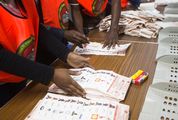
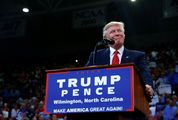



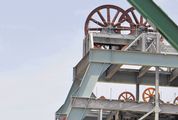

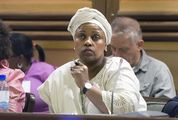
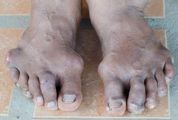
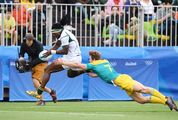
 News and views on the death, and life, of former president Nelson Mandela, with tributes and photographs
News and views on the death, and life, of former president Nelson Mandela, with tributes and photographs






